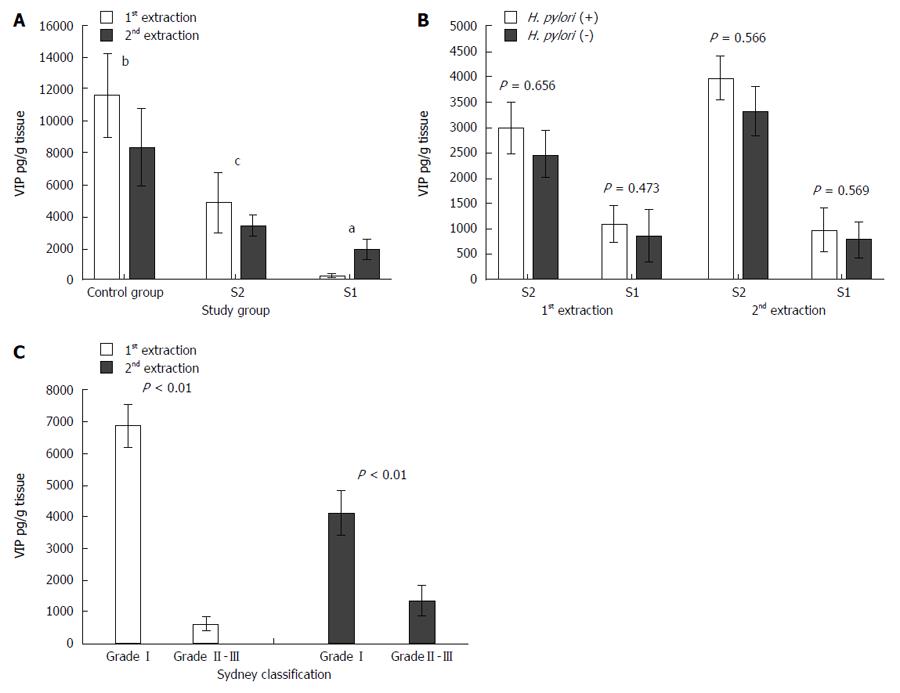Copyright
©The Author(s) 2016.
World J Gastroenterol. Oct 7, 2016; 22(37): 8349-8360
Published online Oct 7, 2016. doi: 10.3748/wjg.v22.i37.8349
Published online Oct 7, 2016. doi: 10.3748/wjg.v22.i37.8349
Figure 3 Vasoactive intestinal peptide levels in the control (n = 30) and study (n = 52) groups.
A: Vasoactive intestinal peptide (VIP) levels were significantly lower in the gastric mucosa from sites with severe (S1) and less severe (S2) gastritis than in the control group. (P = 0.0095, P = 0.0013, first extraction, respectively (a and b); P = 0.001, P = 0.030, second extraction, respectively (a and b)]. The VIP levels were significantly lower in S1 (a) samples than in S2 (c) samples in both the first and second extractions (P = 0.017 and P = 0.030, respectively); B: There were no significant differences in VIP levels between H. pylori (+) and H. pylori (-) patients; C: VIP levels were significantly higher in patients with low-grade gastritis. H. pylori: Helicobacter pylori.
- Citation: Islek A, Yilmaz A, Elpek GO, Erin N. Childhood chronic gastritis and duodenitis: Role of altered sensory neuromediators. World J Gastroenterol 2016; 22(37): 8349-8360
- URL: https://www.wjgnet.com/1007-9327/full/v22/i37/8349.htm
- DOI: https://dx.doi.org/10.3748/wjg.v22.i37.8349









